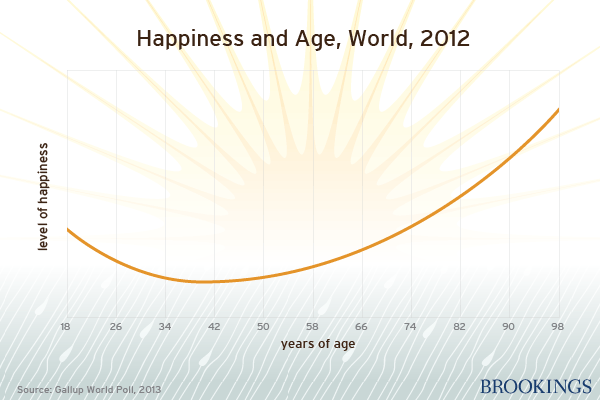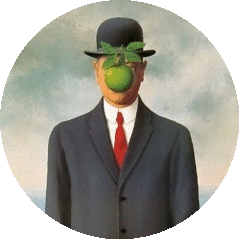Awe
So I turned 40 recently. As a joke, a friend shared an infographic showing that people in their 40s are statistically the least happy (and being the eternal skeptic, I did dig up the source):

As I get older, the desire to share my story, to have it be understood and appreciated, gets stronger; yet I am acutely aware how unlikely it is. It is an ordinary life after all. My stories of love, victories, losses; anecdotes of joy, pride, and guilt; will go to the grave with me. Like tears in rain. This is for the best, of course. The new generation doesn’t need to be burdened with our past, it needs to write its own adventures. After all, you can only tell your kids about honor, heartbreak, loyalty, courage, and intellectual honesty. To understand, they must experience it for themselves, grapple with it and earn it the hard way.
One thing I sincerely wish to avoid though, is to be completely blind about myself. “Our task is to look at the world and see it whole”, said E.F. Schumacher. I merely aim to see myself whole - that is a difficult enough task.
In John Mortimer’s play “Rumpole and the Confession of Guilt”, old Rumpole asks his wife, “Who am I, really?” The question is a haunting one. The Horace Rumpole we know is a gifted and witty trial lawyer who, to the chagrin of his wife, lacks the desire or political savvy to climb the social/career ladder. He’s too iconoclastic, too eccentric, too upright. As other less-qualified men pass him by, he stubbornly remains faithful to his first love - the courtroom - saying “I have the pride to be an Old Bailey hack.” His home life with “She Who Must Be Obeyed” is more duty than pleasure, but he dotes on his son Nick, who as a child loved hearing his dad’s courtroom stories and seeing him in action. “We understand each other, my boy and I,” says Rumpole. Yet as the story goes on, we see that this self-narrative is flawed. Nick, now a young man about to embark on a career in America, is disillusioned with his father’s “courtroom tricks” as he calls them, and makes a last-ditch attempt to break through the old man’s armor and reforge their relationship. It almost works; but just as Horace is opening up, their conversation is interrupted and the mask goes back up. Later, Rumpole’s brilliant instincts help him win the case and save an innocent man from prison; but Nick (who only saw his dad floundering in the morning session) wasn’t there to see it. Rumpole silently carries on the “dialogue” with Nick in his head - almost as if he’s talking to the 4-year old child who hung on his dad’s every word, not the grown man who confronted him an hour ago. One gets the sense that empty-nester Horace does this often. Later that night, as he is discussing the events of the day with “She Who Must Be Obeyed” Hilda, he suddenly asks that fateful question. “Who am I, really?” Hilda, we notice, is no longer an overbearing nag but has taken to alcohol to drown the tedium of an unhappy marriage. She has no answer. Rumpole, as if to protect himself from a blinding flash of self-awareness, buries himself back into case work.
I don’t know why this play affected me so much, or why I remembered it recently. Some combination of my own age/mortality, memories of my parents (then and now), and the fact that I inherited a love of the light-hearted Rumpole books from my father. He was, like old Horace, a loving but uncommunicative man, professionally brilliant but distant at home, lovable but unable to share his true self with those nearest to him. Perhaps I fear going down the same path.
So what is a middle aged man, whose all-time hero Douglas Adams died at 49, to share with the next generation? The thing that comes closest to mind is the moments that left me awe-struck. The smile on my baby sister’s face upon seeing me when I came home from school. Seeing the Swiss Alps at Gimmelwald. Hitting the perfect cricketing pull shot. So many moments of love and vulnerability with the love of my life. So many moments with my kids - seeing them grow up will forever be the best thing I ever did. Having wonderful parents, and being able (to some extent) to be a good son. Reading PG Wodehouse and Douglas Adams books. A.R. Rahman’s music, Ghalib’s poetry.
Remembering these moments… yes, even if it were to all end tomorrow, I would still say “Yup, I got my money’s worth.”
